B. A. MORTON - Mrs. Jones
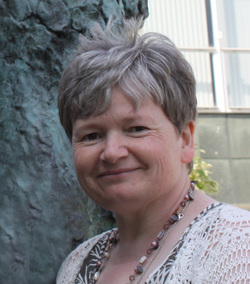
B. A. Morton
Welcome to a brand new feature on my website - the GUEST BLOG SECTION. For my very first guest, I am delighted to welcome B. A. Morton.
Babs and I first met on the writers' website authonomy and have been firm friends ever since. Our friendship was strengthened when we discovered that we both came from the North East and then cemented into our lives when we both succeeded in acquiring book deals at the same time.
B. A. Morton is a writer of romantic crime thrillers and historical fiction.
After a twenty year career in the civil service she and her family escaped the rat race and relocated to the beauty of the Northumberland National Park. She now combines a part time job in the village surgery with her writing.
Her first novel Mrs Jones was released as an eBook in December 2011 and promptly leapt into the top ten in the Kindle eStore. The sequel Molly Brown will follow in 2012 along with Wildewood a historical romp set in medieval Northumberland.
Babs and I first met on the writers' website authonomy and have been firm friends ever since. Our friendship was strengthened when we discovered that we both came from the North East and then cemented into our lives when we both succeeded in acquiring book deals at the same time.
B. A. Morton is a writer of romantic crime thrillers and historical fiction.
After a twenty year career in the civil service she and her family escaped the rat race and relocated to the beauty of the Northumberland National Park. She now combines a part time job in the village surgery with her writing.
Her first novel Mrs Jones was released as an eBook in December 2011 and promptly leapt into the top ten in the Kindle eStore. The sequel Molly Brown will follow in 2012 along with Wildewood a historical romp set in medieval Northumberland.
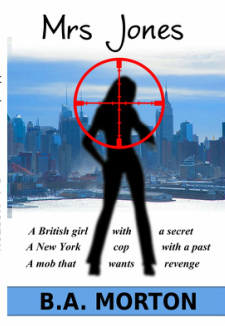
Babs and I recently had a chat about all things publishing and I thought I would share her answers.
So how did you first get into this crazy world of novel writing? When did you first start writing fiction and how did you get your first break?
I’ve always been a scribbler, but began novel writing about eighteen months ago. My first romantic crime thriller Mrs Jones took six months to write. I joined Harper Collins’ Authonomy writing community for advice and feedback and following success with the novel at the 2011 Yeovil Literary Prize competition I approached Night Publishing.
NP and the Night Reading community is a wonderful network of mutual support provided by writers for writers lead by the irrepressible Tim Roux. Following the publication of Mrs Jones, NP has also agreed to take my next two books.
What attracted you to the genre of Crime/Historical Fiction?
Those are the genre’s I read most. I like to be entertained when I read, transported to another place...and that’s what I like to do when I write. Create an adventure, with characters to take you there.
How did you juggle the demands of family life with a writing career and the day job?
I mainly wrote at night and in fact still do, as I find there are fewer distractions. Working part time obviously helps.
How easy –or hard - was it for you to find ideas for your second novel?
Very easy, I have ideas bursting to get out. Often a single sentence or situation is enough to set me off. On those occasions I jot down basic details and store them for later. I have a huge store of WIP’s. Molly Brown, the sequel to Mrs Jones was a natural follow on for the main characters. It picks up about eighteen months further on and answers a few questions left hanging from the first book.
How do you ensure that the setting, characters and details in your novels are authentic and unique?
I try and develop my characters as if I know them personally, I give them quirks and faults as none of us are perfect. Historical details are extensively researched and if I’m using a setting I’m not personally familiar with I try to keep to basics.
Are we Northern novelists at an advantage - or a disadvantage - in any way?
We may well be disadvantaged initially by being remotely located, but we Northerners are a feisty bunch and benefit hugely by the regional support and pride which we seem to garner. The advent of the e-book and the Internet in general, has brought all writers, no matter their location or time zone, into the world-wide writer network. For Historical Fiction writers, our Northern heritage is a definite advantage. The region is awash with history and lore just waiting to be told.
What was the most surprising thing you learnt about the publishing industry after you had been part of it for six months/a year?
Probably, the need for continual self promotion; which I personally find the hardest part. I’d rather spend the time writing.
What do you predict will happen in the future to the publishing industry?
I think e-publishing will play a larger part. The big publishers are now developing their own e-book divisions. This will ultimately change reader awareness. Currently the big publishers decide what we should read based on profitability. The advent of the “no overhead” e-book has given that choice back to the individual reader and this allows opportunity for new talent to be discovered. There will always be a place for the book store and the look, smell and feel of a real book...but real longevity in any industry is about providing economical and viable choices.
So how did you first get into this crazy world of novel writing? When did you first start writing fiction and how did you get your first break?
I’ve always been a scribbler, but began novel writing about eighteen months ago. My first romantic crime thriller Mrs Jones took six months to write. I joined Harper Collins’ Authonomy writing community for advice and feedback and following success with the novel at the 2011 Yeovil Literary Prize competition I approached Night Publishing.
NP and the Night Reading community is a wonderful network of mutual support provided by writers for writers lead by the irrepressible Tim Roux. Following the publication of Mrs Jones, NP has also agreed to take my next two books.
What attracted you to the genre of Crime/Historical Fiction?
Those are the genre’s I read most. I like to be entertained when I read, transported to another place...and that’s what I like to do when I write. Create an adventure, with characters to take you there.
How did you juggle the demands of family life with a writing career and the day job?
I mainly wrote at night and in fact still do, as I find there are fewer distractions. Working part time obviously helps.
How easy –or hard - was it for you to find ideas for your second novel?
Very easy, I have ideas bursting to get out. Often a single sentence or situation is enough to set me off. On those occasions I jot down basic details and store them for later. I have a huge store of WIP’s. Molly Brown, the sequel to Mrs Jones was a natural follow on for the main characters. It picks up about eighteen months further on and answers a few questions left hanging from the first book.
How do you ensure that the setting, characters and details in your novels are authentic and unique?
I try and develop my characters as if I know them personally, I give them quirks and faults as none of us are perfect. Historical details are extensively researched and if I’m using a setting I’m not personally familiar with I try to keep to basics.
Are we Northern novelists at an advantage - or a disadvantage - in any way?
We may well be disadvantaged initially by being remotely located, but we Northerners are a feisty bunch and benefit hugely by the regional support and pride which we seem to garner. The advent of the e-book and the Internet in general, has brought all writers, no matter their location or time zone, into the world-wide writer network. For Historical Fiction writers, our Northern heritage is a definite advantage. The region is awash with history and lore just waiting to be told.
What was the most surprising thing you learnt about the publishing industry after you had been part of it for six months/a year?
Probably, the need for continual self promotion; which I personally find the hardest part. I’d rather spend the time writing.
What do you predict will happen in the future to the publishing industry?
I think e-publishing will play a larger part. The big publishers are now developing their own e-book divisions. This will ultimately change reader awareness. Currently the big publishers decide what we should read based on profitability. The advent of the “no overhead” e-book has given that choice back to the individual reader and this allows opportunity for new talent to be discovered. There will always be a place for the book store and the look, smell and feel of a real book...but real longevity in any industry is about providing economical and viable choices.
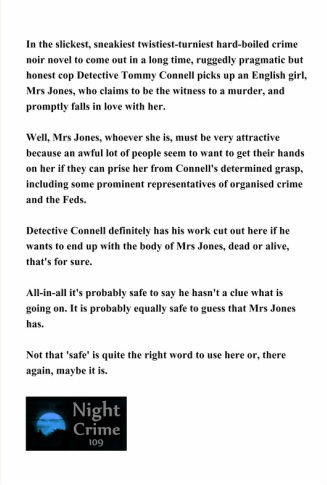
What is the best part of being a writer?
To have someone unknown to me, read and enjoy my work. To understand and relate to my characters and to come away feeling better for the experience.
Have you any advice for newbie authors, like myself?
To any newbie author and I include myself in that...Believe in your story, hone your skills as a writer and then persevere. The ultimate aim of any writer must be to have your work read by others... selling your work is a whole different story.
Thanks for that, Babs.
website for B. A. Morton: www.bamorton.weebly.com
Links to Mrs Jones:
Amazon.co.uk
Amazon.com
To have someone unknown to me, read and enjoy my work. To understand and relate to my characters and to come away feeling better for the experience.
Have you any advice for newbie authors, like myself?
To any newbie author and I include myself in that...Believe in your story, hone your skills as a writer and then persevere. The ultimate aim of any writer must be to have your work read by others... selling your work is a whole different story.
Thanks for that, Babs.
website for B. A. Morton: www.bamorton.weebly.com
Links to Mrs Jones:
Amazon.co.uk
Amazon.com
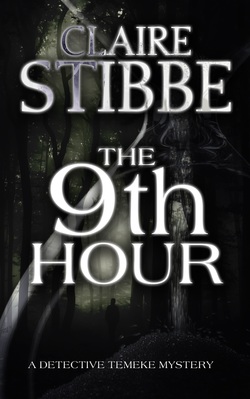
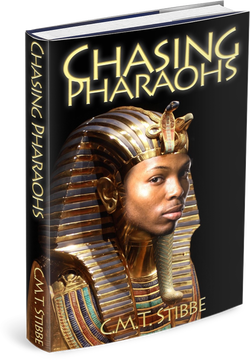
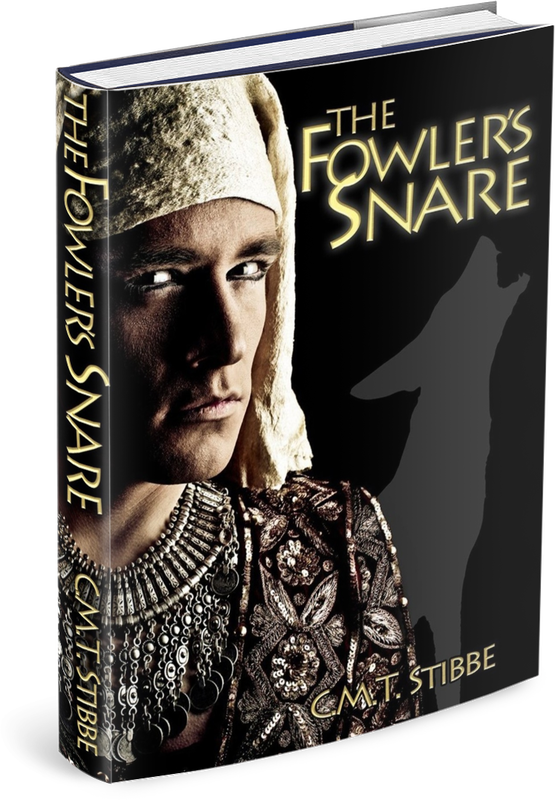
 RSS Feed
RSS Feed